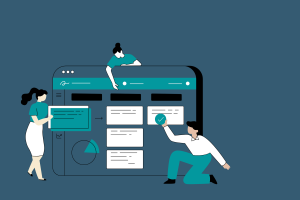
I remember when Wikipedia first came out, it was a big no-no to use it for anything. Although it was so tempting to use because it had so much information in one place. But it was open for anyone to change, so there was no guarantee that the information was going to be accurate. Even with the sources that are provided there was still a lot of distrust over the accuracy of the information retrieved from the site, so all through school we were warned to stay away from it when completing assignments.
I still thought this was the general consensus until after starting the MLIS program when I started seeing professors using Wikipedia as sources. I have had classes where we had to search for information on Wikipedia and discuss the accuracy and the merits of using it as a source of information. And I can see why this would be important because Wikipedia is every where now. A lot more so then back when I was in high school or doing my undergrad school work. Fister, et al (2023) writes, “Wikipedia results started popping up as answers on the first page of Google searches. Having a Wikipedia page became a status symbol for many.” So now it’s become more acceptable to use Wikipedia as a source of information because of its “status symbol” of legitimacy. You still need to check the accuracy of the information retrieved but the inclusion of sources and other tools make it possible.
Fister, et al. raises some interesting points in this “panic” now being transferred to Generative AI, like ChatGPT. There are a lot of concerns with AI, which is understandable, and should not be ignored. But just as the panic set in with Wikipedia in its early days while there were glitches and some concern over the accuracy of the information, it is still the early days of AI.
There is a lot more work that has to go into AI before the panic can subside because there is so much more at stake. Creating more environmentally friendly models and being able to ensure the accuracy of information is going to be high on that list of to dos. When the AI can hallucinate answers it should give anyone pause as to the information taken from an AI tool, but this is not always known be the people using it, such as students using it to do their homework assignments. It is being integrated more and more into our every day online lives and it is important to remain cautious but it is important as information professional to understand how to use it because it is exactly what the foundation of our jobs is, a source of information, and we need to know how to navigate it to help others navigate it correctly.
Fister, B., & Head, A. J. (4 May, 2023). Getting a grip on ChatGPT. Inside Higher Ed. https://www.insidehighered.com/opinion/views/2023/05/04/chatgpt-reshaping-information-infrastructures-opinion
@krheid I so appreciate you touched on the fact that there is panic surrounding technology. Your citation to the article is perfect to support these ideas and I have often recognize this with things like Wikipedia, social media, and now generative artificial intelligence.